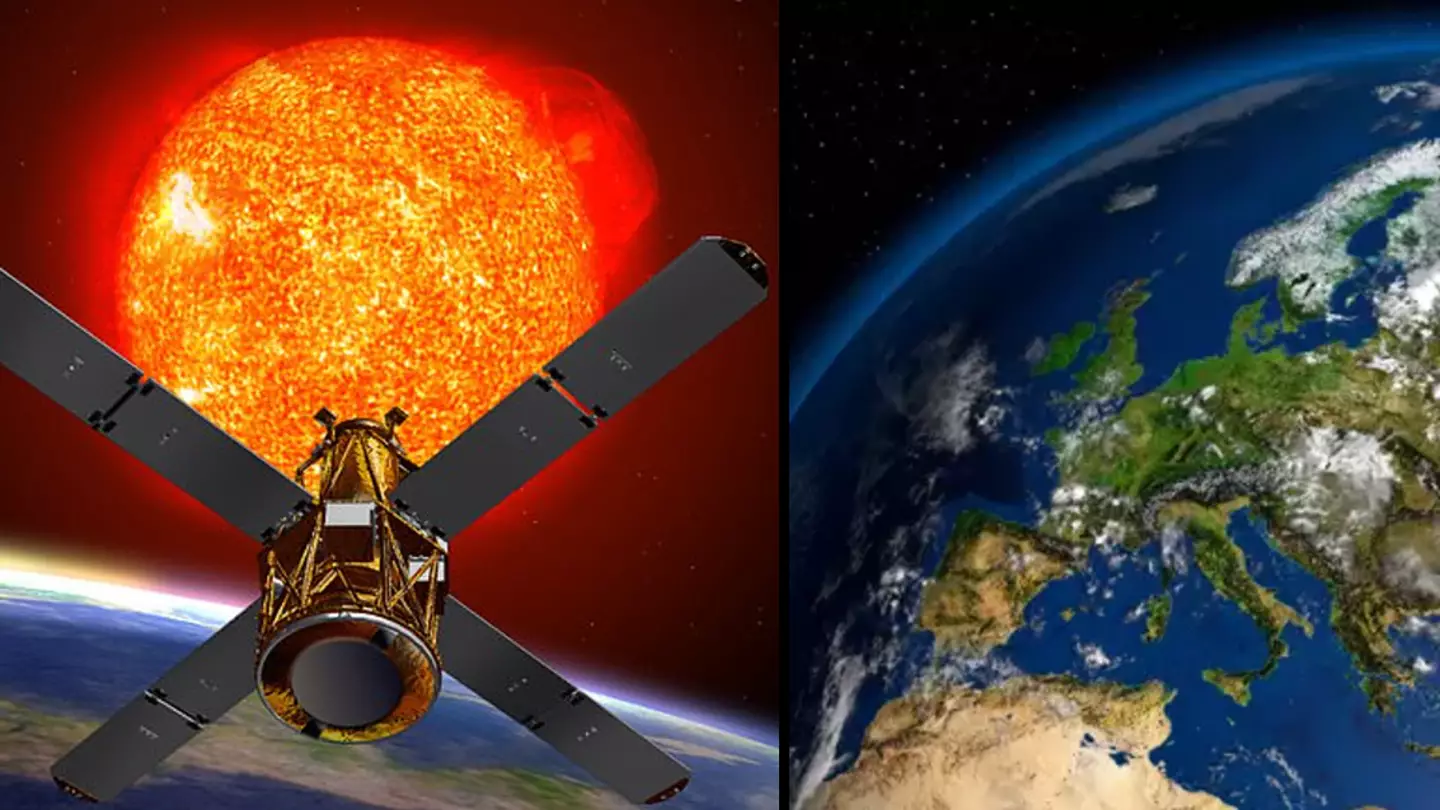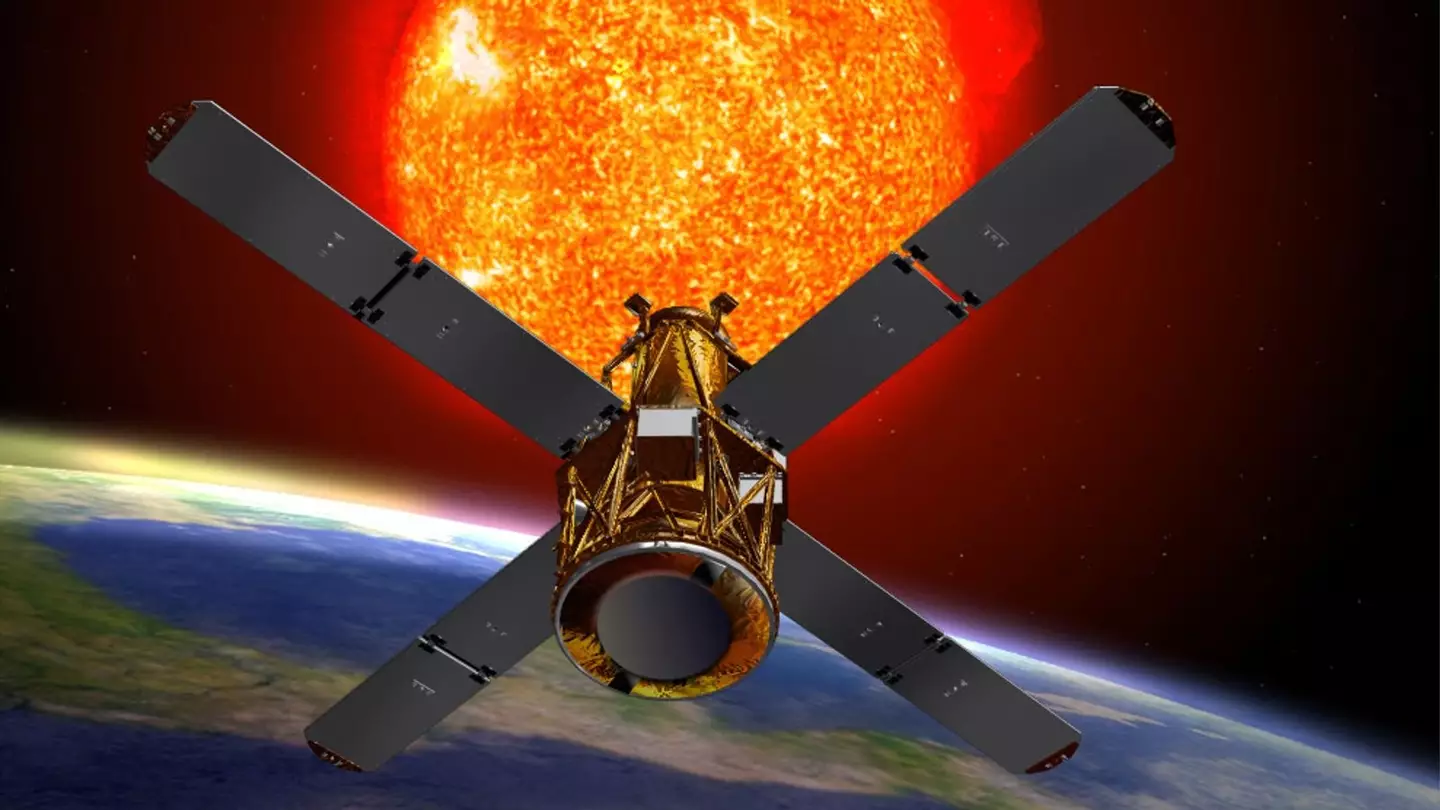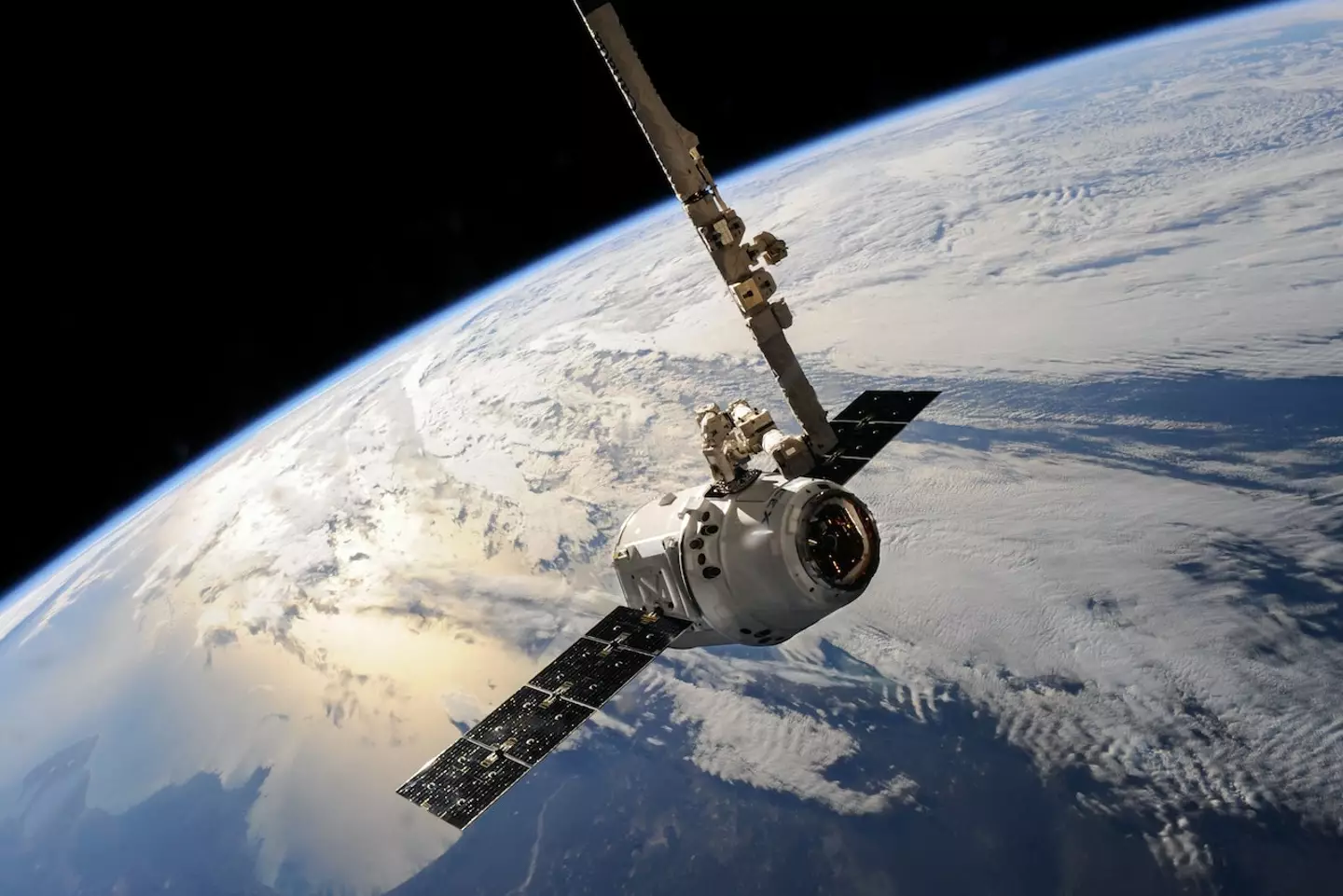
There's a small chance NASA's dead satellite might fall on your head tonight.
NASA’s retired Reuven Ramaty High Energy Solar Spectroscopic Imager (RHESSI) is expected to re-enter Earth's atmosphere almost 21 years after it launched in 2002.
The 660-pound spacecraft was used to observe solar flares and coronal mass ejections from its low-Earth orbit, helping scientists understand how powerful bursts of energy are developed and created.
Advert
"The spacecraft launched aboard an Orbital Sciences Corporation Pegasus XL rocket with a mission to image the high-energy electrons that carry a large part of the energy released in solar flares," NASA explains.
"It achieved this with its sole instrument, an imaging spectrometer, which recorded X-rays and gamma rays from the Sun. Before RHESSI, no gamma-ray images nor high-energy X-ray images had been taken of solar flares.
"Data from RHESSI provided vital clues about solar flares and their associated coronal mass ejections.

"These events release the energy equivalent of billions of megatons of TNT into the solar atmosphere within minutes and can have effects on Earth, including the disruption of electrical systems. Understanding them has proven challenging."
It wasn't a total waste of time by any means, as RHESSI recorded more than 100,000 X-ray events.
The satellite also made improvements in measuring the actual shape and size of the sun, whilst also learning that bursts of gamma rays emitted over lightning storms are more common than previously thought.
However, NASA lost communication with the spacecraft and it was later decommissioned in 2018.
But more importantly, do you need to worry about walking the dog tonight?
NASA and the Defense Department predict RHESSI will re-enter the atmosphere at approximately 9:30 p.m. EDT on Wednesday, April 19 with an uncertainty of +/- 16 hours.
But thankfully, the risk of it actually falling on your head is low – approximately 1 in 2,467.

Well, one man that's pushing the limits of space is Elon Musk who could finally have a date for SpaceX's very first orbital flight to Mars - and it might happen pretty soon.
Speaking last month about his $3 billion Starship rocket, Musk said: “I’m not saying it will get to orbit, but I am guaranteeing excitement. I think it's got, I don't know, hopefully about a 50 percent chance of reaching orbit.”
Musk confirmed that the rocket is ready to go once it receives a launch license from the Federal Aviation Administration (FAA) - meaning it could come any day this month.
Topics: NASA, Space, Technology